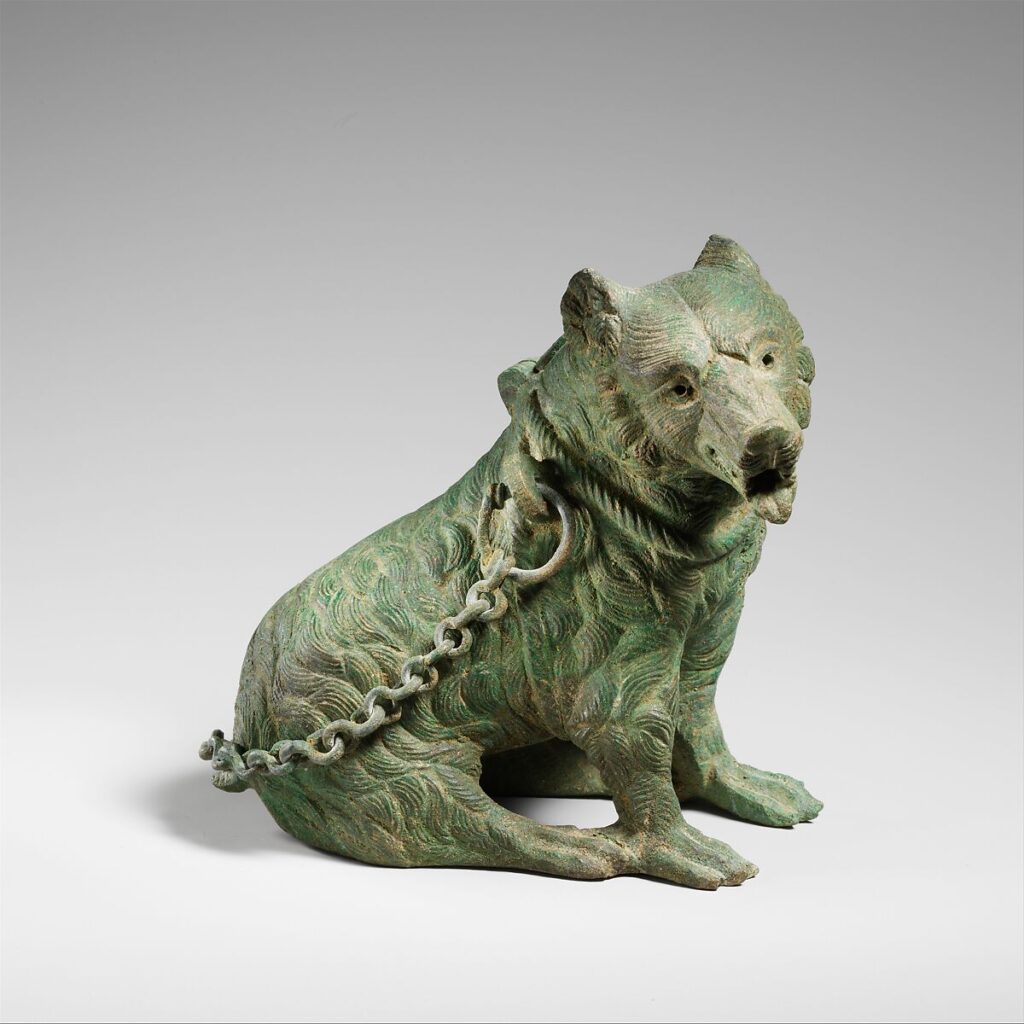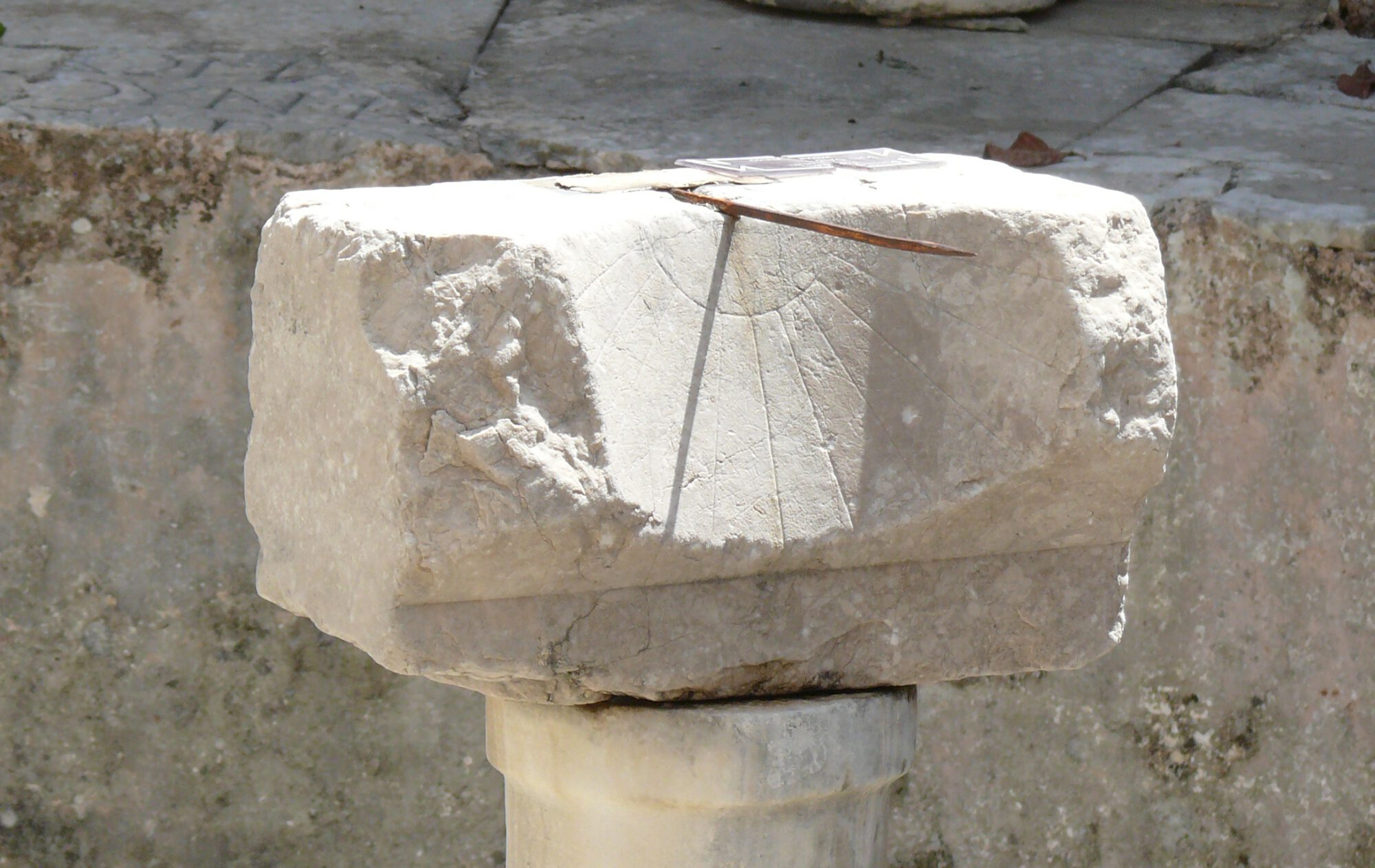Roman animal hunts, so called venationes, were rare occasions. Seeing wild animals in the arena as they attacked each other or were confronted by human fighters was an exciting sight that spectators did not often get to experience. Outside of Rome and Constantinople, these spectacles were organized in the context of the imperial cult. The priests, who took on the office for the duration of one year, had the responsibility to put on festivities for the civic community. In the case of provincial high priests, these annual festivities involved inviting delegations of all cities of their province to the capital and putting on lavish shows for their entertainment. Invitations to the spectacles were placed in the cities of the province, advertising the duration of the event as well as what types of animals would be shown. However, not every priest could afford to present animal hunts and thus opted for less costly displays instead. This means that in the provincial cities of the late antique Roman empire, animal hunts were at most a yearly occasion.
The financial possibilities of the priests limited how often animal hunts were shown. But the spectacles also had to adhere to imperial legislation, which restricted when they were allowed to be presented. In Late Antiquity, the emperor issued several laws that aimed to reconcile Christian feast days with the spectacles, which were denounced by Church leaders as immoral. By the end of the fourth century, it was no longer allowed to show spectacles on Sundays and by the early-fifth century, the period of Lent and Easter was supposed to be spectacle-free, as were Christmas and Epiphany. These measures can be understood as an attempt by the imperial government to appease Christian voices who relentlessly polemicized against the spectacles and at the same time recognized that they were popular entertainment which the population expected in regular intervals.
For fourth-century Antioch, the capital of the province of Syria, we have insights into the intricacies of organizing animal hunts for the provincial assembly through the correspondences of the Antiochean rhetor Libanius. He tells us that the games had lapsed for a long time before his cousin decided to take on the heavy financial burden of procuring animals and hunters from far-away regions. The population of Antioch thus lived several years without animal hunts being shown in their city. All the more excitement and anticipation was attached to the shows of the cousin, for which Libanius aimed to acquire panthers and bears. We also learn from the rhetor that the spectators were so excited to see the animal spectacles that they would arrive on the previous evening at the amphitheatre and sleep on the stone seats to reserve the places with the best view:
“In the case of other entertainments, people stroll along to them at daybreak, but for the beast fights, they suffer under the night sky and think the stone benches softer than their beds, and the spectators’ eyes anticipate the beast fighters in action!” (Lib.ep.1399, transl. by Bradbury (= B4))
In fact, getting to the venue in time seems to have been crucial to obtaining a good seat. Some tried to reserve a seat by inscribing it – we find such inscriptions in all types of venues, from amphitheatres and theatres to stadia and hippodromes – but this approach seems to have had its limits. A seat inscription from Aphrodisias in Asia Minor reads: “Reserved – don’t quarrel” (Jones 2008, cat.-no. 65.86) which, in turn, tells us that quarreling was not uncommon, with or without inscribed reservation.
The most exciting part of animal hunts were the wild animals themselves. But they also provided the biggest hurdle for the organiser: transporting lions, panthers, or bears to a city just in time for the spectacles was a challenging endeavour. Negligent planning could easily lead to trouble. A fifth-century law from the Codex Theodosianus tells us about wild animals that were on their way to Constantinople and had been kept in the city of Hierapolis in Asia Minor for an astonishing four months, forcing the city to provide shelter and fodder for the animals while the presence of the ferocious lions terrorised the population. The imperial law reacted to this unbearable situation by limiting the amount of time wild animals transports were allowed to stop in any provincial city to seven days.

A similar inconvenience happened to Libanius’ cousin while he was trying to put together his animal hunts in Antioch. A letter from the emperor arrived, telling him that he was not allowed to proceed with his shows as planned. The reason was that the emperor himself was to arrive at Antioch and he wanted to enjoy private animal hunts for himself and his close circle. The cousin was supposed to reserve the bears and panthers he had acquired for the enjoyment of the emperor. This meant, as Libanius laments in his letter, that the cousin was either to disinvite all delegations from the provincial cities or to display the animals without killing them as to preserve them for the emperor – but what fun would that be?
“So tell me, what’s he going to do? Will he call off the assembly by announcing that people are to remain in the country and wait for winter? What could be more embarrassing or more costly? For what crime will he endure that punishment? Or will he be obliged to invite the cities and do the rest of it, but then pray over the bears and order no one to wound them even with a judge’s staff? What sort of pleasure is that? How is that not laughable?” (Lib.ep.218, transl. by Bradbury (= B3))
Additionally, the cousin would have to continue to feed the animals until the emperor would reach Antioch, which apparently could take several more weeks or even months. Libanius warns that the costs of keeping the animals much longer than planned could turn out ruinous for his cousin. Unfortunately, we don’t know how the situation resolved since only two of Libanius’ letters on this issue survive. But of course we hope that the cousin in the end was able to present his animal hunts the way he planned and that the people of Antioch got to enjoy a spectacular show.
Konstanze Schiemann
Cited sources:
- Libanii opera. Vol. 10: Epistulae 1-839, ed. by R. Foerster, Leipzig 1921.
- Libanii opera. Vol. 11: Epistulae 840-1544, ed. by R. Foerster, Leipzig 1922.
- Selected Letters of Libanius. From the Age of Constantius and Julian, transl., introd., and with notes by S. Bradbury (= Translated Texts for Historians 41), Liverpool 2004.
- Jones, T. 2008: Seating and Spectacle in the Graeco-Roman World, PhD-thesis, McMaster University, Hamilton. Accessed online 18th September 2023: http://hdl.handle.net/11375/15492.
